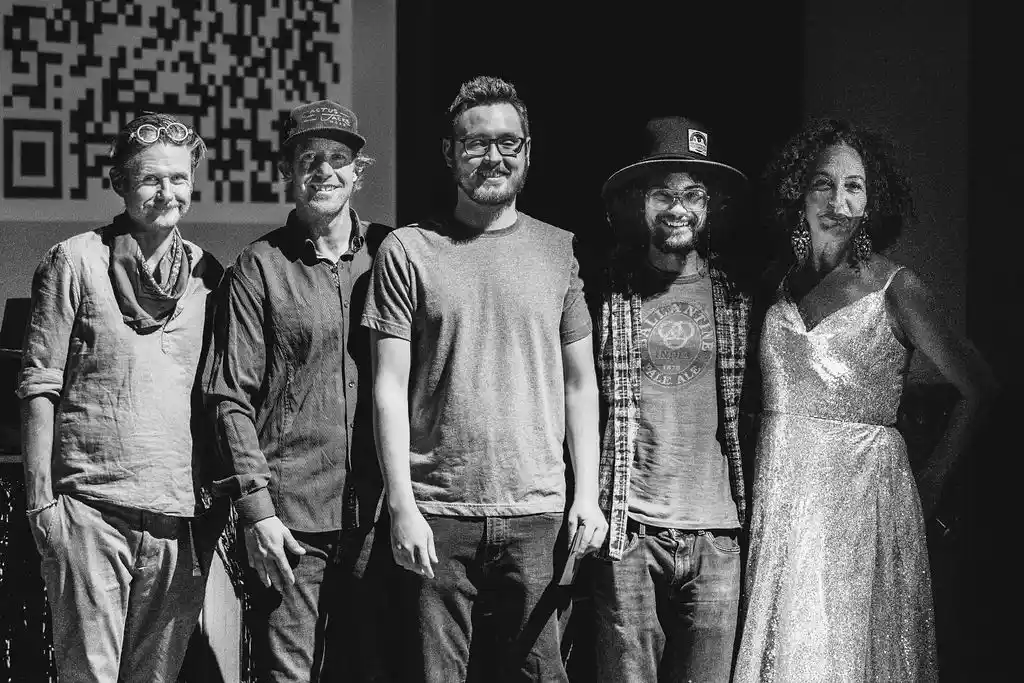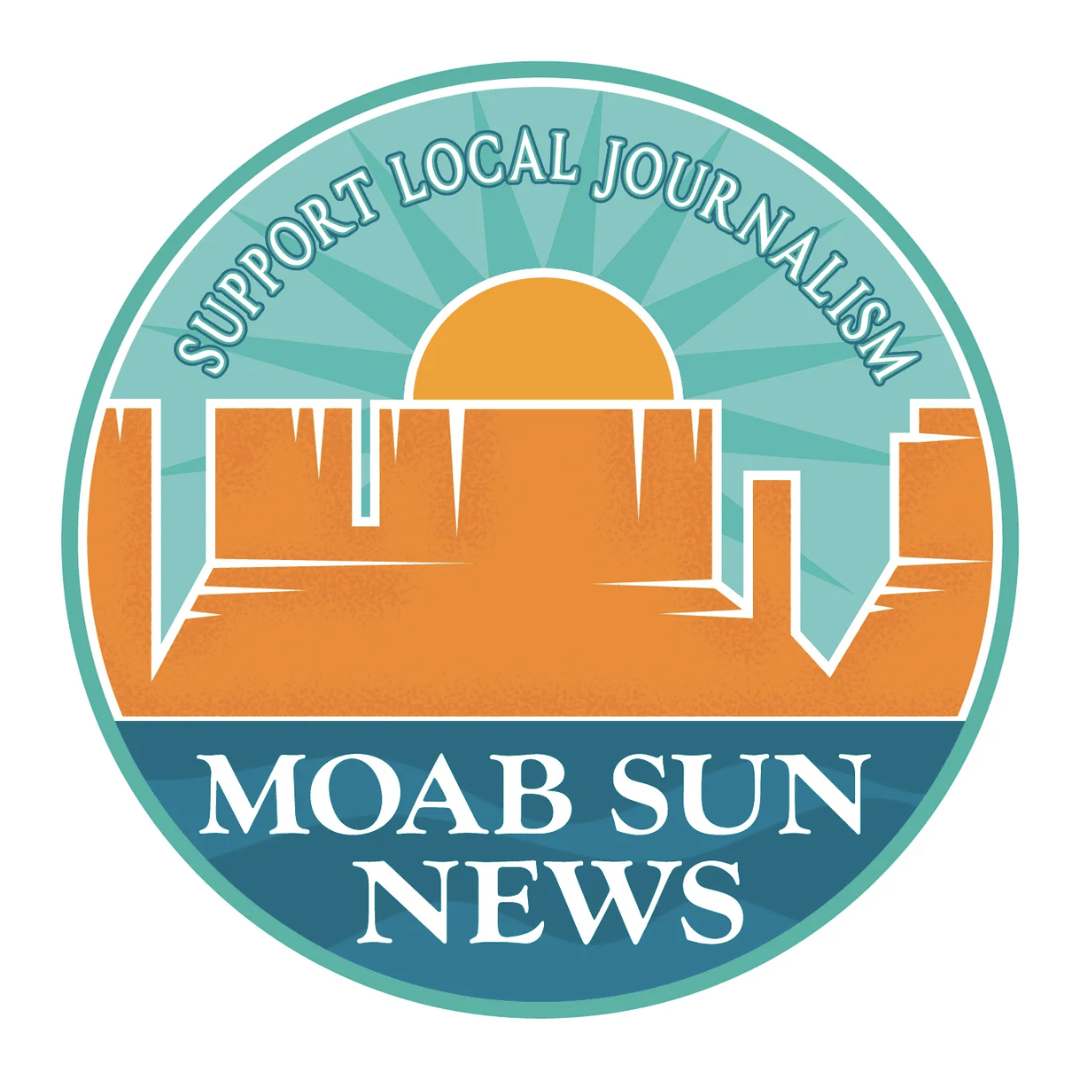Kristen Ramírez-Marsh made breakfast expecting around 10 people to show up to help prepare for this Saturday’s feast and fundraiser for Full Circle Intertribal Center (FCIC).
Within hours, over 40 people had arrived, including community elders who led prayers.
“The support is mindblowing,” Ramírez-Marsh, executive director of FCIC, said. “It shows how hungry our local people are for that connection with our traditions.”
The new nonprofit organization’s mission is to become a center for “Indigenous women, men and youth to nourish healing through tradition and culture.”
“It’s a place where we can proudly share traditional foods together, discuss current issues, all while creating solutions,” said Miyoshi Lee, a member of the FCIC board of directors.
“My grandma used to always say a word in Navajo, in Diné: Hózhó. You can translate it as ‘beauty is restored,’” said Lee.
Lee says that’s what FCIC is trying to offer: an opportunity to reconnect to a supportive community.
“We’re continuously restoring, finding and practicing balance in our daily lives,” Lee said, “and I love that we do it while we laugh and we eat together.”
OPENING UP NEW POSSIBILITIES
“We’re, like, super new,” said Ramírez-Marsh with a laugh. She laughs easily and often, spicing up her expert takes on building resilience, working with social services and the challenges of navigating cultural bias with a generous helping of slang and jokes.
When Ramírez-Marsh moved to the Moab area five years ago, she looked for a place to connect with other Native Americans.
“I was searching for that connectedness, searching for that kinship. I felt so alone here,” she said.
She found a large and diverse population of Indigenous people in the area, but no center or organization.
“We have Pueblo relatives here. There’s Diné, there’s Ute, there’s Shoshone… there’s so many Natives here but no resource center, no chapter house. I was so blown away that I couldn’t find any programming.”
Lee said that she could understand that feeling of disconnection, even as a local.
“You know, growing up here in Moab, there wasn’t very much that celebrated our tradition and our culture,” she said.
A year ago, Ramírez-Marsh started Nourishing Traditions as part of her work with Seekhaven Family Crisis and Resource Center. The group offered a space for Indigenous women, men and youth to reconnect to a nurturing community and share food.
“We say that we’re cooking through culture, and we’re healing with tradition,” Ramírez-Marsh said.
The group went from hosting less than the people to serving dinners to over 50, outgrowing their space.
“And as it kept getting bigger and bigger,” Ramírez-Marsh said, “I was like, you know what? It’s time.”
A core group of women formed from Nourishing Traditions, fired by the idea of an independent nonprofit devoted to Native American culture and support. After months of hard work, the group was awarded 501(c)(3) nonprofit status in September. The Nourishing Traditions program will continue on as a project of the Full Circle Intertribal Center.
“When I met Kristin and we got talking about FCIC, and I knew it was definitely something that I wanted to partake in,” Lee said. “Now I’ve ended up being the Secretary of the Board.”
Current FCIC board members are Virginia Lee-Yellowman, Leslie Goldtooth, Sylvia Buck, Lee and Ramírez-Marsh.
“I’m really excited that our board is comprised of five Indigenous women, all tribally-enrolled from different nations. I love that we have three generations of women represented on our board,” Ramírez-Marsh said, emphasizing the importance of a connection to the elders in the community.
“Our mission at FCIC is really to restore our traditions, to restore our past so future generations know our traditions and our values,” she said.
CREATING A SAFE SPACE FOR INDIGENOUS CULTURES
“FCIC was created for a safe place where we can all celebrate our true Native American identities,” said Lee. “It’s been 41 years since the American Indian Religious Freedom Act passed, but it still feels like we still have to protect and preserve our traditional religious rights and cultural practices.”
The act, passed in 1978, was intended to ensure basic civil liberties to Native Americans, specifically the right to exercise traditional ceremonies and spiritual practices. Despite the federal law, many Native Americans have confronted continued efforts to erase or discourage their cultural practices, according to the Native American Rights Fund.
That history of forced assimilation is part of why having a center that is specific to Native Americans is so crucial, said Lee and Ramírez-Marsh.
“It’s really just about having that safe, sacred space without feeling like our tradition is just going to be ripped apart and exploited,” Ramírez-Marsh said.
In the upcoming year, the women behind FCIC are planning collaborations with local organizations, fundraising events and continuing their work celebrating Indigenous culture including language instruction.
For years, the United States government separated many Native American children from their families and culture, sending them to state or religious boarding schools. Often, children were forbidden to speak their native language and prevented from expressing their cultural traditions. Today, 99% of Native American languages are in danger of disappearing within a generation, as reported by High Country News.
“There has been a decline for many reasons, such as language discrimination from generation to generation and lack of resources for learning Diné,” Lee said, and expressed optimism about the future of language revitalization.
“Language is our connection with our ancestors,” said Ramírez-Marsh, “I was displaced as a child, and I didn’t get to learn it. So I’m still learning.”
Lee said, “It is a communal responsibility. It’s so important to be able to understand our elders so they can teach us about our culture.”
The group plans to start a radio show covering Indigenous issues, which Ramírez-Marsh says will be part in English and part in Diné.
Ramírez-Marsh takes care to mention that they’re focusing initially on Diné since the local Navajo population is larger than other groups, though they hope to expand into other Native American languages.
“If we could find a Ute teacher, that would be amazing,” she says with enthusiasm, though that’s not unusual. Those involved in FCIC exude enthusiasm and excitement for the project’s future.
A WELCOMING FEAST
“We want to have many events that include the non-native community as well so that we can truly be ‘full circle,’ bringing everybody together,” Ramírez-Marsh said.
To celebrate Native American Heritage Month and FCIC’s birth as a nonprofit, the group is holding a feast on Nov. 9 at 3 p.m. on the grounds of the Youth Garden Project, 530 Fourth E. Street.
All are welcome and traditional foods like mutton, ash bread, acorn dumpling soup and more will be served for a suggested donation of $8.00 a plate.
“I want people to come to celebrate our culture with us,” Lee said, emphasizing that she welcomes non-native people to come “with any questions about our culture or traditions: feel free to ask us.”
Based on past experiences, the group expects a good turnout for the event.
“Seeing all the support is huge, because we’ve always been here and we shall remain,” said Ramírez-Marsh. “It’s amazing to be acknowledged and connected to the place that we call home.”
Full Circle Intertribal Center creates a space to celebrate Native American culture
“We say that we’re cooking through culture, and we’re healing with tradition.”
– Kristen Ramírez-Marsh





